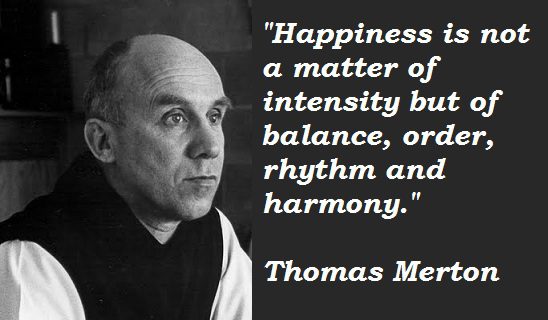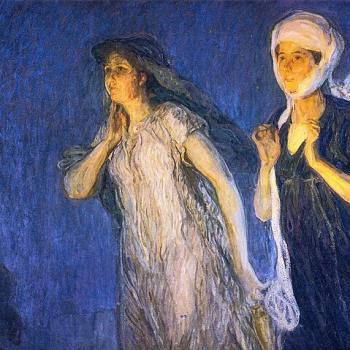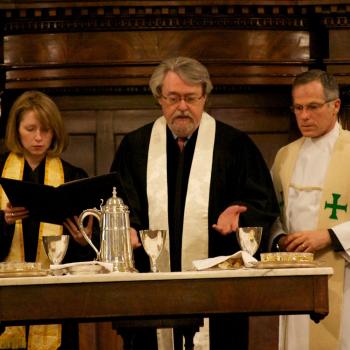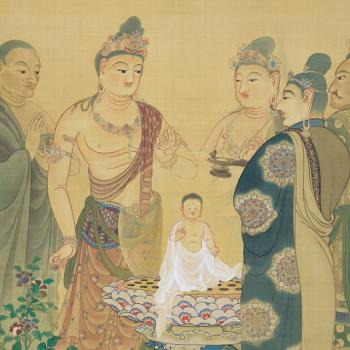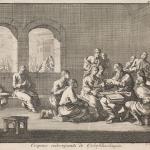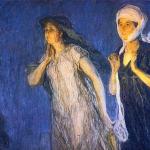I wrote an earlier version of this some years ago. It felt appropriate to revisit, rewrite, and share here today when we need people of wisdom and compassion who can point the great way for us.
In 2013 the Unitarian Universalist General Assembly was held in Louisville. I must admit General Assemblies were never high on my list of pleasures. But this was a major exception. For me that UU convention became a Thomas Merton pilgrimage. I drove out to the Abbey of Gethsemani twice, once with my friend and colleague Erik Wikstrom, and once on my own.
When Erik and I were there we brought flowers for Father Merton’s grave. I don’t have a bucket list, but this opportunity was certainly an important moment for me. I cherish the memories.
At that same time, and in some ways more compelling was something right in downtown Louisville. As far as I know the only state sanctioned marker that notes someone’s spiritual awakening, what in my spirituality would be called a kensho. Father Merton describes that moment that re-oriented his life in several places. Here’s the most complete of the accounts.
“In Louisville, at the corner of Fourth and Walnut, in the center of the shopping district, I was suddenly overwhelmed with the realization that I loved all those people, that they were mine and I theirs, that we could not be alien to one another even though we were total strangers. It was like waking from a dream of separateness, of spurious self-isolation in a special world, the world of renunciation and supposed holiness. The whole illusion of a separate holy existence is a dream.…This sense of liberation from an illusory difference was such a relief and such a joy to me that I almost laughed out loud. And I suppose my happiness could have taken form in the words: ‘Thank God, thank God that I am like other men, that I am only a man among others.’ It is a glorious destiny to be a member of the human race, though it is a race dedicated to many absurdities and one which makes many terrible mistakes: …A member of the human race! To think that such a commonplace realization should suddenly seem like news that one holds the winning ticket in a cosmic sweepstake. And if only everybody could realize this! But it cannot be explained. There is no way of telling people that they are all walking around shining like the sun. They are not ‘they’ but my own self. There are no strangers! Then it was as if I suddenly saw the secret beauty of their hearts, the depths of their hearts where neither sin nor desire nor self-knowledge can reach, the core of their reality. If only they could all see themselves as they really are. If only we could see each other that way all the time. There would be no more war, no more hatred, no more cruelty, no more greed…I suppose the big problem would be that we would fall down and worship each other.”
If that were all, I’d be impressed. But of course there’s more. Thomas Merton was author of the best selling spiritual memoir Seven Story Mountain followed by many other books. And through these writings the cloistered Merton enthralled two generations of spiritual seekers. His influence would extend well beyond his church. Certainly he deeply influenced me. And I believe I’m not the only Buddhist who would acknowledge this.
The way he worked for me was how he was able to bridge traditions, always seeking the deeper truth of things. He gave his life to the spiritual quest, endlessly investigating his own tradition, but then from the depths looking across and seeing other paths that also opened hearts. Of these I think the one that most captured his heart was Buddhism.
And for me, probably his little volume Wisdom of the Desert, was most important. Merton’s curation of the teachings of those fourth and fifth century Egyptian desert nuns and monks led to a collection of very Zen-like stories that instantly caught my imagination, and, frankly, continues to teach me. Merton’s particular selection, chosen as it was, by a Christian mystic and social justice activist who had a deep interest in the world’s religions, particularly Zen Buddhism, emphasized and perhaps over-emphasized the stories that do look so similar across ages and religions. But, my goodness, they really do.
In 1968 Father Merton, who had been attending an interfaith monastic conference in Bankok, Thailand, stepped out of his bath and apparently reached and touched an electric fan, was shocked and suffered a fatal heart attack. By coincidence it was the twenty-seventh anniversary of his entrance into Gethsemane Abbey.
His life and the many blessings of that life deserves celebrating.
My teacher, Thomas Merton.


